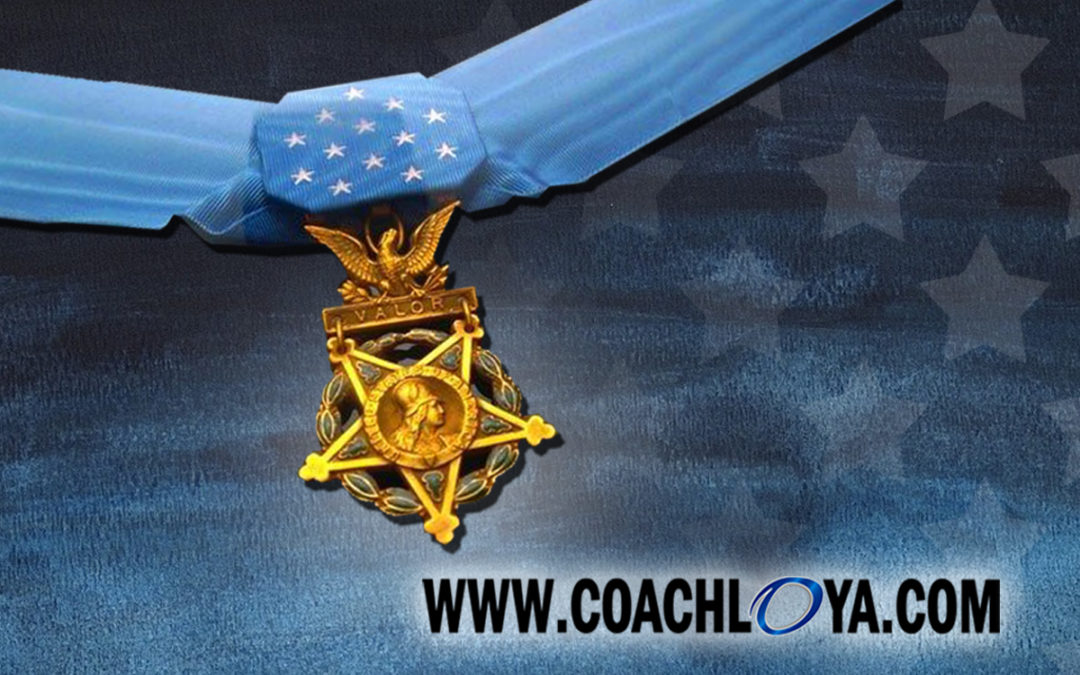Today’s edition of Teammate Tuesdays comes from the On This Date in History files.
On July 12, 1862, President Abraham Lincoln signed into legislation a measure that created the United States Army’s highest and most prestigious award for military valor—the Medal of Honor.
According to the Congressional Medal of Honor Society, a total of 3,534 medals have been awarded since the decoration’s creation. While the criteria has evolved over the years, the Medal of Honor has always retained an association with actions that go above and beyond the call of duty.
The wording in Lincoln’s original measure called for the Medal of Honor to be bestowed upon those who distinguished themselves through “gallantry in action” during times of insurrection.
I like the phrase “gallantry in action” because the concept applies to the art of being a good teammate. Good teammates are frequently called to exhibit gallantry (courageousness, bravery) in their actions.
They’re gallant whenever they do what’s right instead of what’s popular. They’re gallant whenever they confront the wayward behaviors of toxic teammates. They’re gallant whenever they choose selflessness over selfishness.
Though these actions may not share the same dangers as those on the battlefield, they do come with their own relative level of risk.
Doing what’s right instead of what’s popular might get you laughed at. Confronting a toxic teammate might get you shunned. Choosing selflessness over selfishness might get you thought a fool.
Willie Johnson, the youngest person to have ever been awarded the Medal of Honor, was just eleven years old when he enlisted in the Union Army. He served as a drummer boy in Company D of the Vermont Third Infantry.
 Having drummers on the battlefield seems silly by contemporary standards. But in the days prior to radios, satellites, and cell phones, musicians played a vital role in infantry communications.
Having drummers on the battlefield seems silly by contemporary standards. But in the days prior to radios, satellites, and cell phones, musicians played a vital role in infantry communications.
Under the orders of General George McClellan, Johnson’s unit was forced to retreat during the arduous Seven Days Battle on the Virginia Peninsula. With Confederates in pursuit, many of the fleeing soldiers discarded their equipment to “hasten” their retreat—an act viewed at the time as selfish and cowardly.
Johnson, however, never abandoned his drum nor his responsibilities. Tales of his bravery soon made their way to President Lincoln’s desk. Lincoln awarded Johnson the Medal of Honor shortly thereafter.
An article in the St. Johnsbury Caledonian, Johnson’s hometown newspaper, quoted text from Lincoln’s citation that distinguished the boy as “being the only drummer who brought his drum from the field.” Johnson’s story highlights two important elements of gallantry and its relationship to teamwork.
If your team is struggling, consider the following questions:
- In moments of peril, do members of your team revert to self-preservation? Do they abandon their commitment to their team to save themselves? Or do they engage in “gallantry in action?”
- How is “gallantry in action” honored on your team? Are medals awarded? Is it recognized through some other meaningful way? Or is it treated as unceremonious behavior?
Successful teams encourage, embrace, and reward gallantry. By doing so, they create a culture capable of withstanding the most difficult challenges.
As always…Good teammates care. Good teammates share. Good teammates listen. Go be a good teammate.





